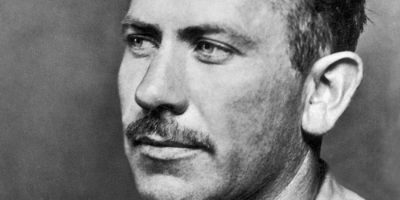30 Famous Love Poets Who Captured Hearts with Words
As a hopeless romantic, love poems have always held a special place in my heart. For centuries, poems have been crafted to discuss an emotion we all long for or for the lucky, can relate to – Love!
However, have you ever stopped to consider the individuals behind these timeless pieces? In this article, we won’t just be swooning over beautiful stanzas, well, not exclusively, but delving into the lives, motivations, and life work of the poets themselves.
From the legendary Shakespeare to the passionate Rumi, these artistic treasures have captured the essence of love in all its complexities using mere words.
We’ll travel across continents and through time, meeting iconic figures like the Bard himself, to modern-day voices.
So, whether you’re a longtime poetry aficionado or simply curious about the magical brains behind the words, join me on this journey as we celebrate the authors who dared to bear their hearts and, in turn, captured ours.
1. John Keats
Born in London in 1795, John Keats is celebrated as one of the leading figures of the Romantic poetry movement. His heartbreakingly short life was marked by an intense exploration of love, beauty, and mortality.
Keats’ poetic legacy includes timeless works like “Ode to a Nightingale” and “Bright Star,” where he painted vivid images of romance and the fleeting nature of life. In “Bright Star,” Keats expresses enduring love, writing;
“Pillow’d upon my fair love’s ripening breast,
To feel forever its soft fall and swell.
Awake for ever in a sweet unrest,
Still, still to hear her tender-taken breath,”
Keats’ eloquent verses continue to resonate, capturing the essence of timeless and passionate love.
2. Elizabeth Barrett Browning
Elizabeth Barrett Browning, born in 1806, was a Victorian poet from England. Renowned for her arresting love sonnets, she broke societal norms with her unapologetic expressions of passion.
Confined to her room due to illness, Elizabeth found love through letters with Robert Browning. Her “Sonnets from the Portuguese” documented their blossoming love, transforming traditional sonnets into intimate expressions of devotion:
“How do I love thee? Let me count the ways
I love thee to the depth and breadth and height
My soul can reach, when feeling out of sight
For the ends of Being and ideal Grace.”
Her poems like “Aurora Leigh” and “A Curse for a Nation” also explored social issues and feminism, making her a pioneer in romantic and societal poetry.
3. Pablo Neruda

Unknown (Mondadori Publishers), Public domain, via Wikimedia Commons
Lifelong Latin America resident Pablo Neruda remains exceptionally renowned for poetic odes lauding both romantic and sensual love as human existence’s core inspiration.
Born to railway worker parents in Chile in 1904 as Neftalí Ricardo Reyes, Neruda took his pen name young, demonstrating early promise winning accolades like 1945’s Medal for Poetry awarding his critically successful Twenty Love Songs collection.
Works like One Hundred Love Sonnets: XVII capture relatable insights through simple beauty explaining how the love of the speaker to the subject cannot be expressed or defined by simple surface-level things, such as appearance.
In the poem, he declares “I do not love you as if you were salt-rose, or topaz…I love you as certain dark things are to be loved, secretly, between the shadow and the soul.”
Before dying days after Chile’s 1973 coup, Neruda pushed political activism while communicating irreplaceable beauty through lyrically poignant verse still cherished worldwide today.
4. Rumi
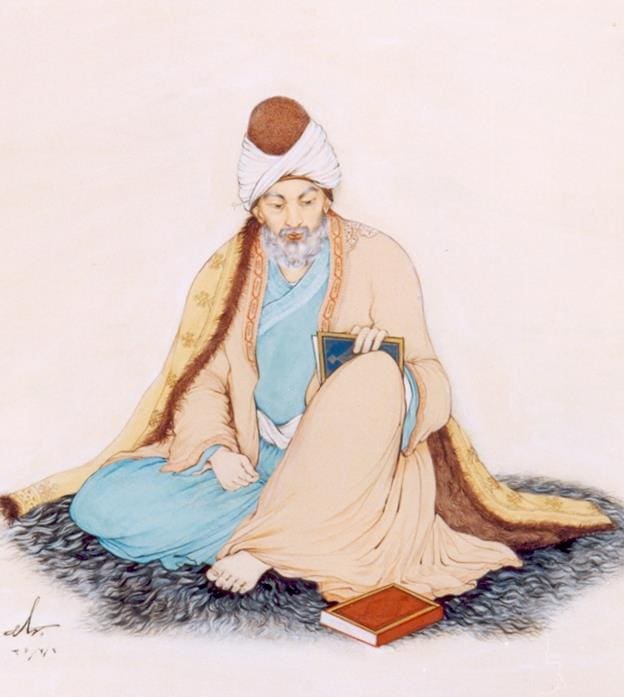
Hossein Behzad, Public domain, via Wikimedia Commons
Though originally named Muhammad Balkhi, Afghanistan-born 13th century Sufi mystic Rumi is a legend in every way. Beyond earthly romance, Rumi’s poetry explores love’s spiritual and transcendent dimensions.
His magnum opus, “Masnavi,” uses parables and stories to illuminate the divine love within all beings. He saw love as the essence of existence, guiding us towards union with the ultimate Truth:
“Love is a sea without shore and horizon;
If you throw pebbles into it,
they become pearls.”
Rumi’s poems transcend cultural and religious boundaries, offering timeless wisdom on love’s transformative power and the path to spiritual fulfillment.
5. Lord Byron

Thomas Phillips, Public domain, via Wikimedia Commons
Recognized as the leading English Romantic poet of the early 19th century, Lord Byron lived with a notoriety for his nonconformist lifestyle and the lyrical mastery alike found within works like “She Walks in Beauty”.
Born in 1788 within London aristocracy, Byron shot to fame in 1812 with his breakthrough epic poem Childe Harold’s Pilgrimage followed by successive Cantos solidifying Byron’s celebrity. This was despite him alienating rigid British society through taboo relationships and supporting the Greek revolt against the Ottoman Empire.
Before dying young of fever in 1824 assisting Greek independence militias, works like “When We Two Parted” written responding to Lady Caroline Lamb’s obsessive affair with the notorious poet came to epitomize literary embodiments of the Byronic Hero figure signifying brooding dark romantic charm.
6. Robert Browning

Herbert Rose Barraud (1845 – ca.1896), Public domain, via Wikimedia Commons
Husband of fellow revered poet Elizabeth Barrett (discussed above), Robert Browning pioneered innovative Victorian poetry defying stylistic conventions.
Robert Browning was born in 1812 in the south suburbs of London. As an autodidact, Browning invented a 16-line rhyming scheme for his dramatic monologues, which examined historical motifs and personas.
Today, Browning is renowned for works such as his poetic novel The Ring and the Book, which demonstrate his mastery of dramatic monologues probing history through an imaginative, lyrical lens.
He passed away in Venice in 1889 having only found modest recognition. However, afterward, he gained posthumous acclaim and admiration. Pieces like Porphyria’s Lover explore the deranged psyche’s rationalizing murder while Sonnet XLIII meaningfully declares “How do I love thee? Let me count the ways.”
7. Walt Whitman

George C. Cox (1851–1902)[1], Public domain, via Wikimedia Commons
Whitman’s poetry breaks free from traditional forms, embracing a more free-verse style. In “Song of Myself,” he passionately declares, “I celebrate myself, / And what I assume, you shall assume, / For every atom belonging to me as good belongs to you.”
Walt Whitman’s evocative verses resonate with a celebration of love, nature, and the shared human experience.
8. William Shakespeare

Cousins, Samuel, 1801-1887, engraver, Public domain, via Wikimedia Commons
This one doesn’t need much introduction really! Born in Stratford-upon-Avon in 1564, William Shakespeare remains a model playwright and poet.
His sonnets, particularly Sonnet 18 (“Shall I compare thee to a summer’s day?”), have become iconic expressions of love. Shakespeare’s exploration of love in works like “Romeo and Juliet,” “Twelfth Night,” and “A Midsummer Night’s Dream” showcases his profound understanding of human emotions.
The enduring appeal of lines like “Love looks not with the eyes, but with the mind” from “A Midsummer Night’s Dream” cements Shakespeare’s status as a timeless bard whose words continue to captivate hearts around the world.
9. Sara Teasdale
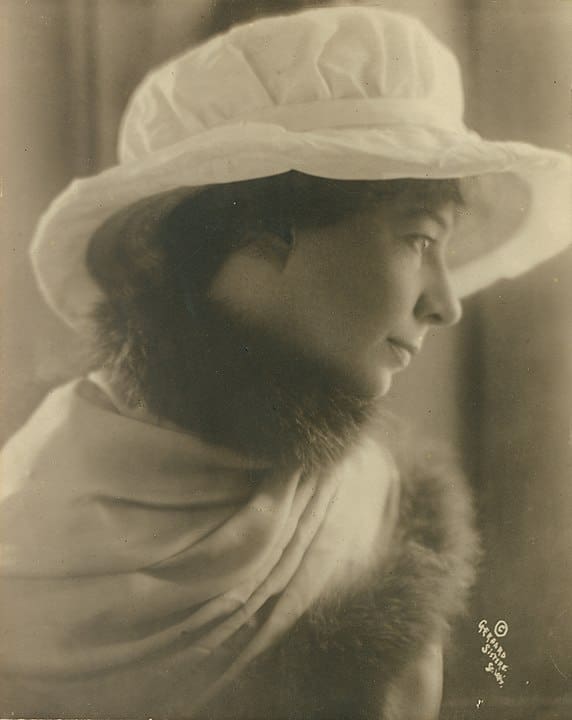
Creator: Gerhard Sisters, Public domain, via Wikimedia Commons
Born in St. Louis, Missouri, in 1884, Sara Teasdale was a prominent American poet known for her eloquent and evocative verses. Her poetry often explored themes of love, nature, and the human experience.
Teasdale’s best-known works include “Love Songs” and “Flame and Shadow.” In “I Am Not Yours,” she expresses the poignant longing of unrequited love:
“I am not yours, not lost in you,
Not lost, although I long to be
Lost as a candle lit at noon,
Lost as a snowflake in the sea.”
10. Rabindranath Tagore
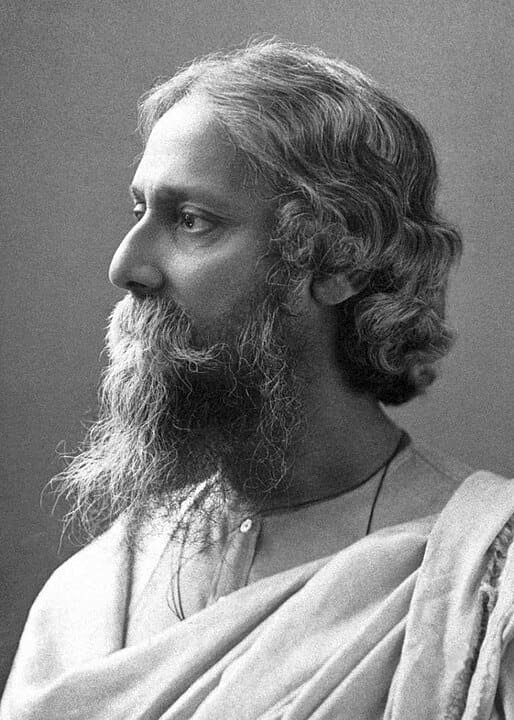
Generalstabens litografiska anstalt, Public domain, via Wikimedia Commons
An eclectic icon considered India’s first Nobel Laureate through breathtaking poetry and sprawling fiction alike, Bengali luminary Rabindranath Tagore profoundly influenced national culture.
Born in 1861 to an affluent family within the teeming melting pot of Kolkata under British colonial rule, Tagore evoked timeless romantic longing through simplicity within pieces like “Unending Love.”
Its heartfelt lines implore his beloved, “I seem to have loved you in numberless forms, numberless times / In life after life, in age after age forever…”
Knighted by Britain in 1915 though later controversially renouncing accolades to protest colonial violence, the prolific poet’s works spotlight delicacy and desire’s universality through sublime rhythmic lyricism and profound mystic imagery alike.
11. Rainer Maria Rilke

Leonid Pasternak, Public domain, via Wikimedia Commons
Rainer Maria Rilke, born in Prague in 1875, was a Bohemian-Austrian poet celebrated for his lyrical and introspective style. His collection “Letters to a Young Poet” is revered for its wisdom.
Rainer Maria Rilke lived an itinerant battled with chronic illness impacting relationships and output before leukemia claimed him in 1926.
Works like “Forgetful of Myself” meaningfully uplift a passionate romantic charge as its verses read “When in front of my eyes you stand,
sorrow consumes me entirely:
beloved, forgetful of myself,
I want to hurl myself into your arms…”
Capturing ardent affection, religious fervor and nature’s transcendent mysticism mixing formal precision with intuitive themes, Rilke’s intimate reflections ensure his enduring influence.
12. E.E. Cummings

New York World-Telegram and the Sun staff photographer: Albertin, Walter, photographer., Public domain, via Wikimedia Commons
While often associated with experimentation, American original Edward Estlin (E.E.) Cummings touched hearts through lyric simplicity belying acclaim for stylistic innovation.
Debuting self-published poetry in 1923 after studying at Harvard where relationships with both men and women inspired verse sentiments before marrying model Marion Moorehead.
Works like “I Carry Your Heart” tenderly avow lasting bonds as lines read “I carry your heart with me (I carry it in my heart)…”
13. W.B. Yeats
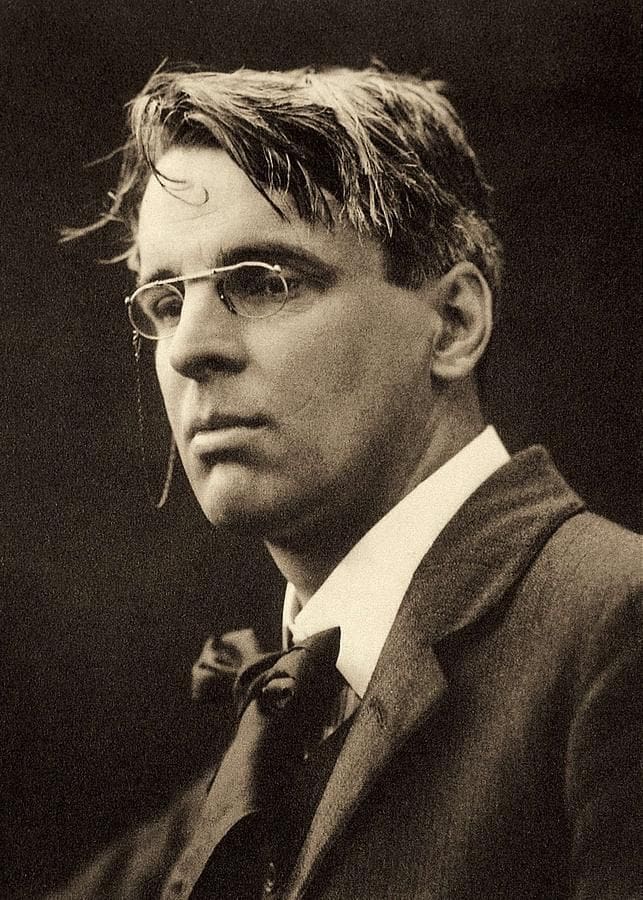
George Charles Beresford, Public domain, via Wikimedia Commons
An Irish lyricist considered among the leading lights rejuvenating 19th-century poetic tradition, William Butler Yeats channeled Celtic myths in his romantic writings.
Born in 1865 as Ascendancy descendants amid Ireland’s complex political turmoil, Yeats helped establish Dublin’s National Literary Society and Abbey Theater while serving public duties as a Senator before being distinguished as 1923’s Nobel laureate.
Works like “A Man Young And Old: XI. From Oedipus at Colonus” meaningfully eulogize passions with words like;
“When you are old and gray and full of sleep,
And nodding by the fire, take down this book,
And slowly read, and dream of the soft look
Your long-gone lover had, and sigh and weep:
That I was made of clay, and you of gold.”
Remaining prolific through 1930 death at 73 in France, Yeat’s moody dream-like writings left indelible marks on modernist perspectives.
14. Edgar Allan Poe
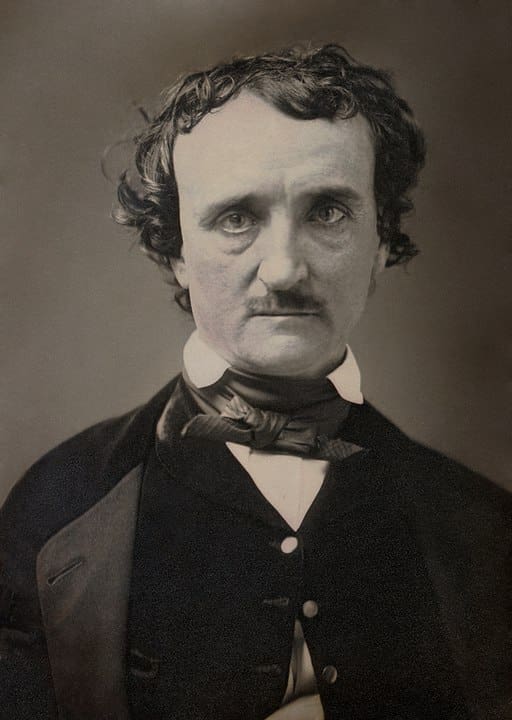
Unknown authorUnknown author; Restored by Yann Forget and Adam Cuerden, Public domain, via Wikimedia Commons
Renowned today as the pioneering force behind Gothic fiction, the tragically brief life of Edgar Allan Poe, a native of Virginia, intricately weaved somber and eerie themes with the profound heartache that marked his 40 years.
Orphaned at a young age with the death of his actress mother, Poe’s journey through a military and writing career garnered sporadic acclaim, witnessing the rapid demise of both his child bride cousin and maternal figures due to illness.
Despite facing numerous challenges, including the publication of over 100 short works encompassing dark lyrical reflections and mysterious tales, Poe’s 1849 demise left an enduring legacy.
Poems like “To One Departed” resonantly capture enduring affection, with verses that speak poignantly, “Seraph sister, thy silver voice / ever will be to me / dearest of all things the dearest…”
15. Emily Dickinson

See page for author, Public domain, via Wikimedia Commons
Emily Dickinson was an enigmatic and prolific American poet. Renowned for her unique voice and unconventional style, Dickinson’s love poems often explore themes of passion and mortality.
Emily Dickinson was born in 1830 into a prominent Amherst, Massachusetts family. During her lifetime, less than a dozen of the over 1,800 poems she wrote in secret isolation were published.
It was only after her death that Dickinson’s groundbreaking experimental verses were introduced to a global audience. Posthumous collections revealed her lyrical genius and radical style that pushed the conventions of poetic envelopes.
Excerpts like “Wild nights – Wild nights!” from poems long hidden from view by this enigmatic, mysterious recluse, showcase her fervent passion through rich symbolism and language.
Dickinson’s formerly withheld works came to illuminate the visionary talents of a woman who crafted captivating verses unwitnessed by her 19th century contemporaries.
16. Sylvia Plath

Giovanni Giovannetti/Grazia Neri, Public domain, via Wikimedia Commons
Sylvia Plath, born in Boston in 1932, was a leading figure in confessional poetry. Her work often delved into the complexities of love, identity, motherhood, and mental health.
In “Mad Girl’s Love Song,” Plath explores the ambivalence of love:
“I lift my lids and all is born again.
(I think I made you up inside my head.)”
Plath’s deeply personal and evocative verses, as seen in “Ariel” and “Lady Lazarus,” continue to resonate with readers, offering a glimpse into the tumultuous landscape of her own emotions.
17. Alice Walker

Virginia DeBolt, CC BY-SA 2.0, via Wikimedia Commons
Hailing from rural Georgia, Alice Walker rose to fame with her lyrical works that celebrated Black heritage. She gained widespread recognition through her impactful 1982 novel, “The Color Purple,” which highlighted racial and gender themes.
Born in 1944 as the youngest in her sharecropping family, Walker’s worldview was shaped by the trauma of accidentally losing one eye during childhood. This experience influenced her perspective as she navigated life and eventually graduated from Sarah Lawrence College.
Her powerful lyric voice found a place within the 1960s Civil Rights movement, as evidenced by early verses in collections like “Revolutionary Petunias,” showcasing pride and resilience. Pieces like “Women” connect generations through meaningful verse, paying homage to her forebears.
18. Sappho

Capitoline Museums, Public domain, via Wikimedia Commons
The enduring legacy of the ancient Greek poet Sappho is marked by fragmentary verses that spotlight women’s passions on the island of Lesbos. Little is confirmed about her 7th-century BC lifetime, and only a single full poem remains intact.
Part of the poem reads;
“You may forget but
let me tell you
this: someone in
some future time
will think of us,”
Her poems hypnotize with imagery and longing, underscoring the fleeting nature of mortal life and the enduring power of love captured in art.
19. Ovid
Known as the original love poet, the Roman mythographer Ovid showcased astonishing creativity in spinning Greek tales into a Roman context with his work “Metamorphoses.”
Born in 43 BC among the equestrian class, Ovid’s urbane and cheeky elegance is evident in works like “Amores,” meaning “Loves,” before he faced an abrupt exile by Emperor Augustus in 8 AD.
The cause of his banishment remains unclear even after over 2000 years, yet his words continue to resonate, cautioning that “If you drink love’s strong drink, an empty mind you may sink.”
20. Dante
Dante Alighieri, a 14th-century genius from Florence, penned an epic poem tracing spiritual awakening through the afterlife in “Inferno,” with his adoration for Beatrice as a central theme.
Born in 1265 into a city marked by tumultuous factions, Dante’s poetic journey began when he glimpsed eight-year-old Beatrice Portinari from afar. This encounter became the inspiration for his eternal muse, even after her premature passing.
Dante’s words ensure that mortality itself proves no match for true love, immortalized through his enduring masterpiece penned after his death in 1321.
21. William Carlos Williams

See page for author, Public domain, via Wikimedia Commons
William Carlos Williams, born in 1883 in Rutherford, New Jersey, was an American poet who revolutionized modern poetry with his fresh and vivid language. He was also a physician who practiced medicine in New Jersey for over 40 years.
Williams wrote many love poems that expressed his passion, tenderness, and humor. Some of his most famous love poems are “Love Song”, “Love”, and “This Is Just To Say”.
Williams believed that poetry should be rooted in the everyday life and experiences of ordinary people.
22. Percy Bysshe Shelley
Percy Bysshe Shelley was an English poet who was one of the leading figures of the Romantic movement. Born in 1792 and hailing from Horsham England, he was a rebel who challenged the social and political norms of his time.
He was also a lover who had many affairs and elopements, most notably with Mary Shelley, the author of Frankenstein. Shelley wrote many love poems that celebrated the beauty, freedom, and power of love.
Some of his most famous love poems are “Love’s Philosophy”, “To a Skylark”, and “Ozymandias”. Shelley believed that poetry should be a force for change and inspiration.
23. Khalil Gibran

Freedom’s Falcon, CC BY-SA 3.0, via Wikimedia Commons
Hailing from Bsharri, Lebanon, Khalil Gibran (1883-1931) is a poet and philosopher whose words transcend borders. Best known for “The Prophet,” Gibran’s musings on love, marriage, and life resonate with timeless wisdom.
In “On Love,” he advises, “Love one another, but make not a bond of love.” Gibran’s work, blending mysticism and profound insights, has made him one of the most beloved and translated poets globally, leaving an indelible mark on the hearts that have encountered his verses.
24. Federico García Lorca
Born in Fuente Vaqueros, Spain, in 1898, Federico García Lorca remains a captivating figure of Spanish literature. An Andalusian poet, Lorca’s works, including “Romancero Gitano” and “Blood Wedding,” reflect the fiery spirit of his region.
His profound exploration of love, often entwined with tragedy and folklore, secures his place among the greats. Lines like “Green, how I want you green” from “Romance Sonámbulo” exemplify Lorca’s evocative language and deep connection to his cultural roots.
In the world of love poetry, Lorca’s passionate verses paint a vibrant picture that continues to captivate hearts.
25. Sonia Sanchez
Sonia Sanchez, born in Birmingham, Alabama, in 1934, is a trailblazing African American poet, activist, and professor. Her impactful words resonate with themes of love, liberation, and social justice.
Sanchez’s contributions to the Black Arts Movement and the Civil Rights Movement have solidified her place as a poetic voice for change.
In works like “Shake Loose My Skin,” she explores love and empowerment, transcending traditional boundaries. Through her eloquent verses, she not only captures the heartbeat of personal emotions but also channels the pulse of societal change,
26. Adrienne Rich
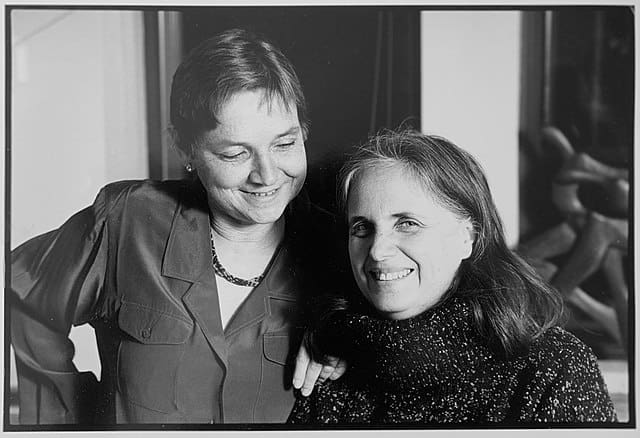
Ovaryian, CC BY-SA 4.0, via Wikimedia Commons
Adrienne Rich, a formidable force born in Baltimore in 1929, stands as a feminist icon in American poetry. Her words, like those in “Twenty-One Love Poems,” explore the intersections of love, identity, and societal challenges.
Rich’s verses, rich with eloquence and a call for justice, invite readers into a world where love is both personal and political.
Lines such as “I touch you knowing we weren’t born tomorrow” showcase Rich’s ability to weave the personal and political threads of love into a tapestry that resonates with readers.
27. Carol Ann Duffy

walnut whippet from Hull, UK, CC BY 2.0, via Wikimedia Commons
Carol Ann Duffy, born in Glasgow in 1955, became the first female Poet Laureate of the United Kingdom. Her accessible yet profound poetry, including works like “Rapture” and “The World’s Wife,” delves into the complexities of modern love.
Duffy’s ability to infuse wit and insight into verses like “You, once a belle in Shreveport, somehow, for me, preserved” captures the essence of her unique voice that captivates hearts and minds alike.
Her exploration of love, often challenging traditional narratives, places her among the prominent voices shaping contemporary poetry.
28. John Donne

National Portrait Gallery, Public domain, via Wikimedia Commons
John Donne, the 17th-century English metaphysical poet, was born in 1572. Known for his clever wordplay and exploration of complex themes, Donne’s love poems often showcased a unique blend of passion and intellect.
In “A Valediction: Forbidding Mourning,” he compares the love between him and his wife to a compass, symbolizing a connection that transcends physical separation.
Donne’s innovative approach to love poetry made him a distinctive figure of his time.
29. Robert Graves
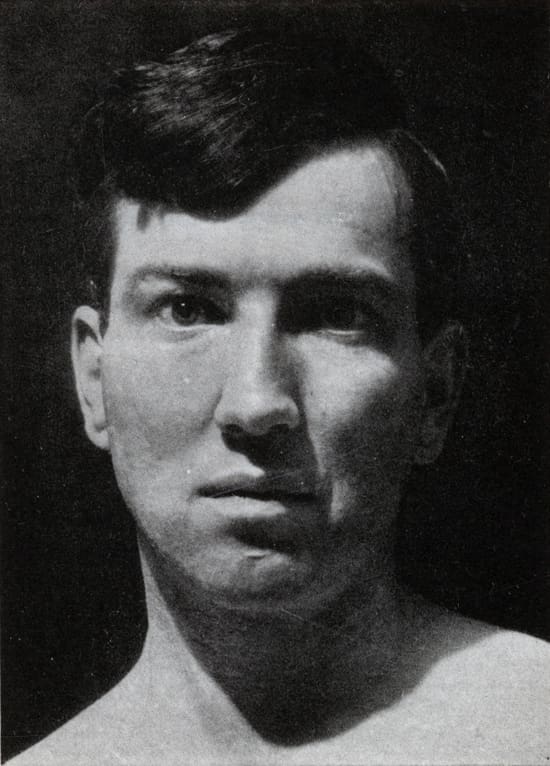
See page for author, Public domain, via Wikimedia Commons
Born in Wimbledon, England, in 1895, Robert Graves was a poet, novelist, and mythographer. His poetic works, like “To Juan at the Winter Solstice,” reflect a deep fascination with mythology and love.
Graves’ exploration of love often intertwines with his interest in ancient myths, creating a poetic tapestry that captures both the timeless and the contemporary.
His ability to weave together themes of love, nature, and mythology makes Graves a unique and influential voice in the realm of poetry.
30. Wislawa Szymborska

Juan de Vojníkov, CC BY-SA 3.0, via Wikimedia Commons
Wislawa Szymborska, born in Poland in 1923, was a Nobel Prize-winning poet known for her contemplative and often humorous approach to life’s complexities.
Her love poems, like “True Love,” navigate the intricacies of human relationships with wit and insight. Szymborska’s ability to blend philosophical depth with a light touch sets her apart, making her work accessible and profound simultaneously.
Her lyrical prowess and unique perspective have left an indelible mark on contemporary poetry, earning her international acclaim.
rom the timeless wisdom of ancient masters to the raw vulnerability of contemporary voices, this journey through love’s literary landscape has been an inspiring one. Each poet, in their own unique way, has gifted us with words that resonate, challenge, and remind us of the transformative power of love.
Planning a trip to Paris ? Get ready !
These are Amazon’s best-selling travel products that you may need for coming to Paris.
Bookstore
- The best travel book : Rick Steves – Paris 2023 – Learn more here
- Fodor’s Paris 2024 – Learn more here
Travel Gear
- Venture Pal Lightweight Backpack – Learn more here
- Samsonite Winfield 2 28″ Luggage – Learn more here
- Swig Savvy’s Stainless Steel Insulated Water Bottle – Learn more here
Check Amazon’s best-seller list for the most popular travel accessories. We sometimes read this list just to find out what new travel products people are buying.


